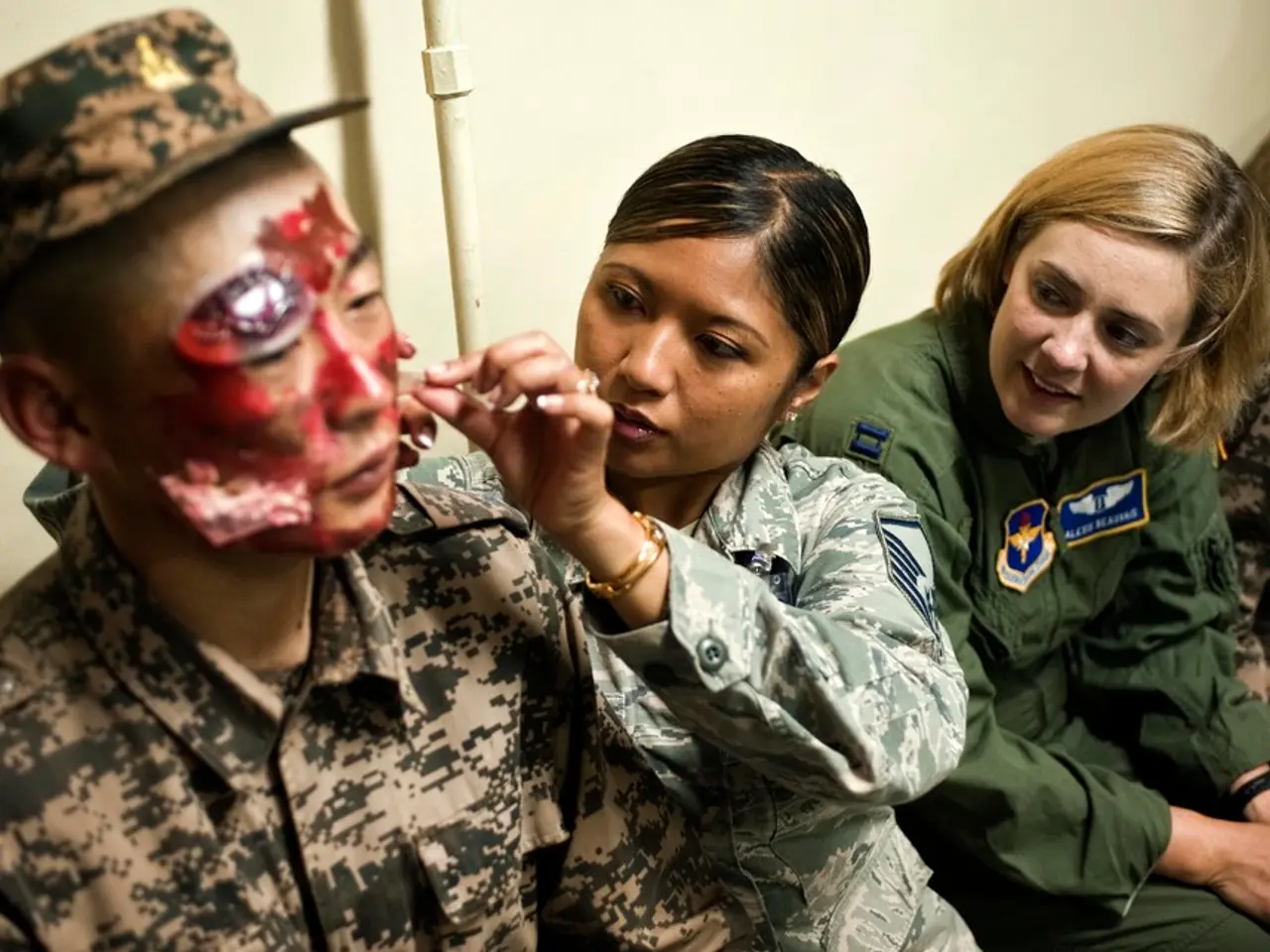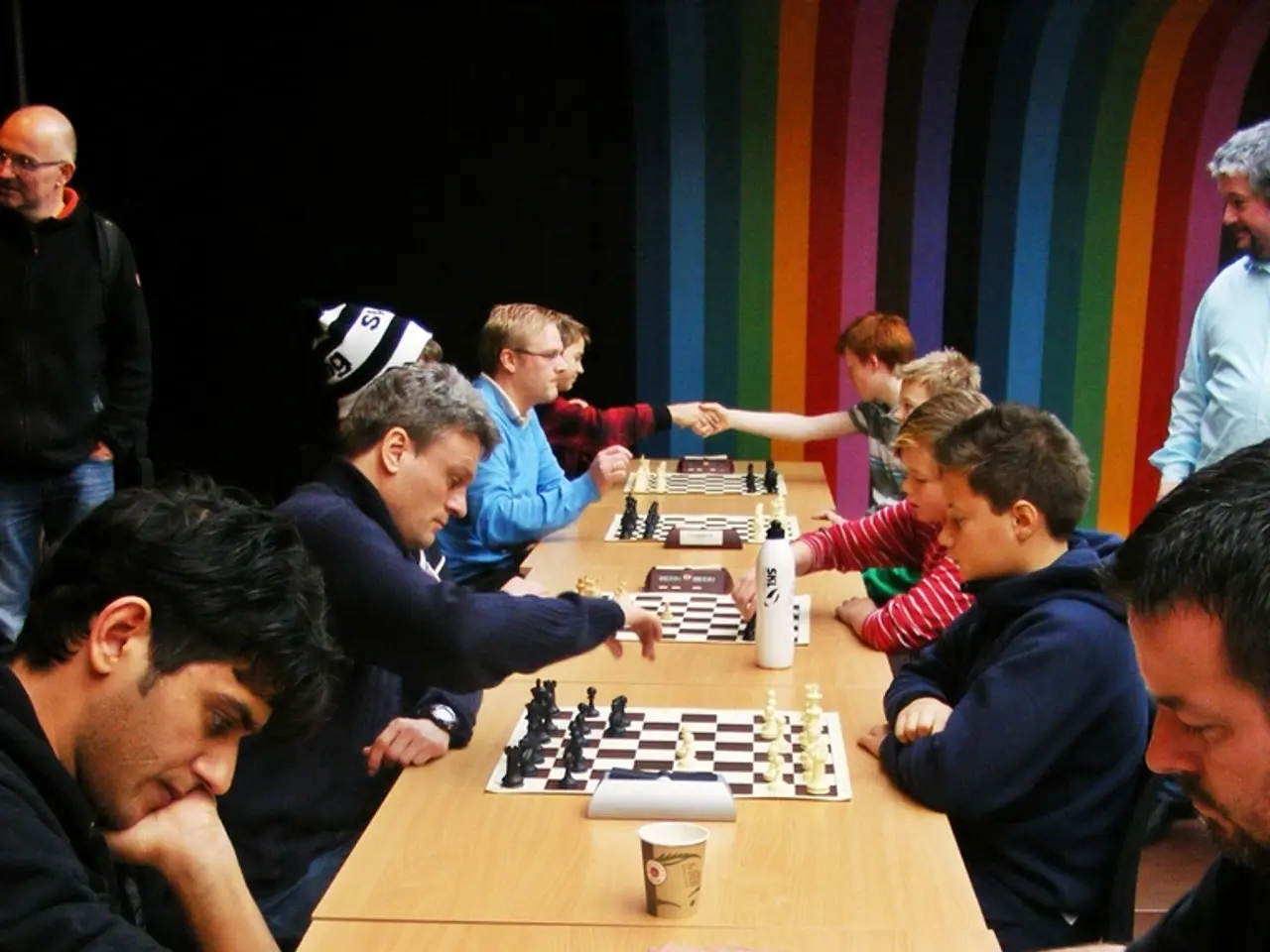"Munyakho expresses remorse to the family of the victim, after spending 14 years in a Saudi prison"
In a heartwarming turn of events, Stephen Munyakho, a Kenyan citizen, was released from Saudi Arabian prisons in July 2025, ending a 14-year ordeal that began with a fatal altercation in April 2011.
The incident, rooted in a salary-related dispute, resulted in the death of Munyakho's Yemeni colleague, Abdi Halim. During the altercation, Munyakho stabbed Halim on the chest, while Halim retaliated by stabbing Munyakho on the hand and thigh. Unfortunately, Halim's life was claimed due to delayed medical attention, leading to excessive bleeding.
Initially convicted of manslaughter, Munyakho's sentence was later upgraded to murder under Saudi law, carrying a death penalty by beheading. However, the execution was delayed due to a stipulation under Sharia law, as the victim's children were minors at the time. This law allows the victim’s family to demand capital punishment, forgive the convict, or accept diyya (blood money) as compensation.
Munyakho's release was secured through a legal and financial process involving negotiations with the victim’s family, the Kenyan government, and the Muslim World League. Over 129 million Kenyan shillings were raised to pay the blood money.
Throughout his imprisonment, Munyakho spent nearly a decade-and-a-half in the Saudi Prisons system. He also converted to Islam during his time in prison. Upon his return to Kenya, he was met with an emotional welcome.
However, Munyakho never had the chance to mourn publicly, say goodbye to his friend, or apologize to the bereaved family. He returned to a country vastly changed, to children who have grown into adults, to loved ones who passed on in his absence.
The release of Munyakho was made possible through sustained diplomatic efforts, philanthropic support, and national solidarity, including a direct appeal by President William Ruto to the ruler of the Kingdom of Saudi Arabia, Prince Mohammed bin Salman.
Currently, there are over 1,000 Kenyans facing incarceration in various countries, and embassies and missions are working to protect their rights and explore all possible channels for resolution. The CS expressed gratitude to the Muslim community, led by SUPKEM, the Kenya Conference of Catholic Bishops, and thousands of Kenyans who contributed financially and spiritually to Munyakho's release.
Munyakho, now a free man, expressed deep regrets for the incident that led to Halim's death. He spoke of the challenges faced by prisoners waiting for blood money to be paid, overcrowded prisons, and the mental toll inflicted during their imprisonment.
As Munyakho begins his new life, he does so with a heavy heart, forever haunted by the events that led to his long imprisonment and the loss of his friend.
In light of Munyakho's release, general-news outlets, including epaper, have reported on the political implications of Kenya's ongoing diplomatic efforts to ensure the well-being of its citizens abroad. The crime-and-justice system, particularly the interpretation of Sharia law, has been a topic of discussions in political circles, highlighting the need for reform in international criminal proceedings. Concurrently, the health of Munyakho, who converted to Islam during his imprisonment, has been a matter of concern for the Kenyan government, due to the mental and physical toll inflicted during his long detention. As Munyakho navigates his new life, the importance of access to healthcare for formerly incarcerated individuals is emphasized, promoting a healthier society for all citizens.






